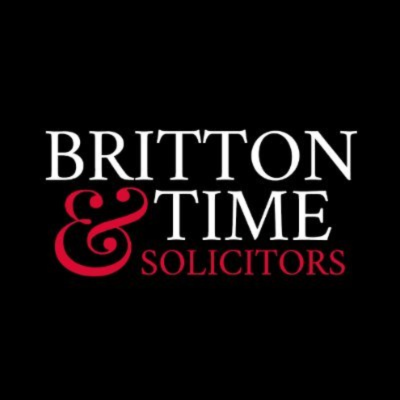Book A Consultation
What whistleblowing policies exist for employers in the UK?
Protecting your business from false whistleblowing claims requires understanding key legal safeguards. Employers have robust defence mechanisms under UK law that shield you from malicious allegations. For instance, imagine a disgruntled employee trying to damage your company’s reputation – you’re not powerless.
The legal system helps you challenge unfounded claims through:
- Strict evidential standards for complaints
- Employment tribunal processes
- Protection against vexatious accusations
Imagine a scenario where an employee fabricates a workplace misconduct claim. You can defend yourself by maintaining detailed workplace records, creating clear internal reporting procedures, and demonstrating transparent employment practices.
The law recognises that not all whistleblowing claims are genuine. Employers can successfully challenge allegations that lack substantial proof or are motivated by personal grievances. By documenting interactions and maintaining professional standards, you protect your business’s integrity.
If you’re worried about potential whistleblowing risks, submit our lead form, and we’ll connect you with expert SRA-regulated solicitors who specialise in employment law.
Protect your business today – contact us now!
Legal requirements for whistleblowing policies
When developing your organisation’s whistleblowing policy, you must create a comprehensive framework that protects employees and ensures legal compliance. Your policy should include clear procedures for reporting concerns about workplace wrongdoing, such as financial irregularities, safety violations, or unethical behaviour. For instance, a financial services company might establish a confidential reporting hotline that allows employees to raise concerns anonymously.
Key requirements include:
- Protecting workers from unfair dismissal
- Providing multiple reporting channels
- Ensuring investigations are thorough and impartial
- Maintaining strict confidentiality
- Covering various types of misconduct
Consider implementing a robust system that encourages employees to speak up without fear of retaliation. This might involve creating dedicated compliance teams, offering legal protections, and establishing clear communication protocols for investigating and addressing reported concerns.
By developing a transparent and supportive whistleblowing policy, you demonstrate your commitment to ethical workplace practices. Need expert guidance? Contact us, and we’ll match you with award-winning SRA-regulated solicitors who can help you develop a comprehensive policy.
Why whistleblowing policies are important for organisations
Whistleblowing policy serves as a critical mechanism for maintaining organisational integrity and ethical standards. When employees feel empowered to report misconduct, they become the guardians of workplace transparency. Consider a scenario where a pharmaceutical company employee uncovers unsafe manufacturing practices – their courageous disclosure could prevent potential public health risks.
Key benefits include:
- Exposing hidden misconduct before it escalates
- Preventing financial losses through early intervention
- Creating a culture of accountability and trust
- Protecting both employees and organisational reputation
The impact of effective whistleblowing extends beyond immediate problem-solving. It transforms workplace dynamics, encouraging open communication and demonstrating that ethical behaviour is valued. By establishing clear reporting channels, organisations signal their commitment to integrity and responsible governance.
Employees play a crucial role in identifying potential risks, acting as an internal early warning system. Their willingness to speak up can save companies from significant reputational and financial damage.
Need expert guidance navigating whistleblowing complexities? Explore official GOV.UK resources on whistleblowing policies and protections, or submit our lead form to connect with SRA-regulated solicitors who specialise in employment law and organisational compliance.
How to encourage whistleblowing in a safe environment
Creating a workplace culture that champions ethical reporting requires strategic approaches. Employees need to feel genuinely protected when raising concerns about potential misconduct. Start by developing comprehensive mechanisms that prioritise confidentiality and psychological safety. This means establishing multiple reporting channels, including anonymous digital platforms and dedicated compliance teams.
Key strategies include integrating confidential reporting systems, implementing robust anti-retaliation policies, and training leadership to respond constructively. For instance, organisations can create specialised teams that handle disclosures with sensitivity and discretion. Managers must be equipped to listen without judgement, demonstrating that speaking up is viewed as a courageous act that protects the entire workplace.
By fostering an environment of transparency and trust, you empower employees to become guardians of organisational integrity. Recognise and reward those who demonstrate ethical courage, and consistently communicate that reporting misconduct is not just acceptable – it’s essential.
Ready to transform your workplace culture? Contact us, and we’ll match you with award-winning SRA-regulated solicitors who can guide you through developing comprehensive whistleblowing strategies.
Explore More on Whistleblowing:
Related Articles

Whistleblowing and Data Protection: GDPR Guide
Whistleblowing And Data Protection Whistleblowing And The GDPR In The Uk Can Whistleblowers Report Anonymously Whistleblowing Without Evidence: Legal Risks And Considerations Book A ConsultationWhistleblowing and Data Protection Whistleblowing can be a challenging...
Join Our Newsletter
Voluntary Redundancy Rules: A Complete Guide
Understanding Voluntary Redundancy Rules Employer Responsibilities And Legal Obligations Employee Eligibility For Voluntary Redundancy The Application And Selection Process Financial Exit Packages For Voluntary Redundancy Tax Implications Of Redundancy Payments Book A...
What Are the Rules for Pregnancy Sick Leave?
What Is Sick Leave During Pregnancy Can You Take Sick Leave During Pregnancy When Can You Take Sick Leave During Pregnancy How To Get Sick Leave During Pregnancy Reasons For Sick Leave During Pregnancy How Much Sick Leave Can You Take During Pregnancy Book A...
Statutory Maternity Pay: Your Complete Guide
Statutory Maternity Pay Who Is Eligible For Statutory Maternity Pay How Is Statutory Maternity Pay Calculated Statutory Maternity Pay Vs Maternity Allowance How Does Statutory Maternity Pay Affect Employment Benefits Can Employers Claim Back Statutory Maternity Pay...
What Constitutes Workplace Harassment?
Understanding Harassment At Work Key Examples Of Workplace Harassment The Impact Of Harassment On Employees Reporting Workplace Harassment: Steps To Take Employer Responsibilities In Preventing Harassment The Difference Between Harassment And Bullying Book A...









